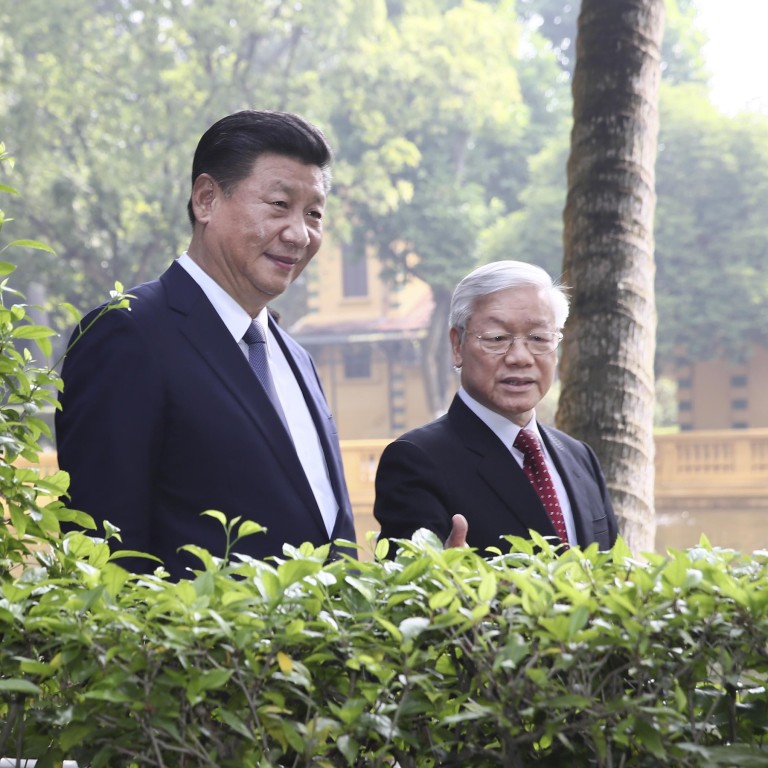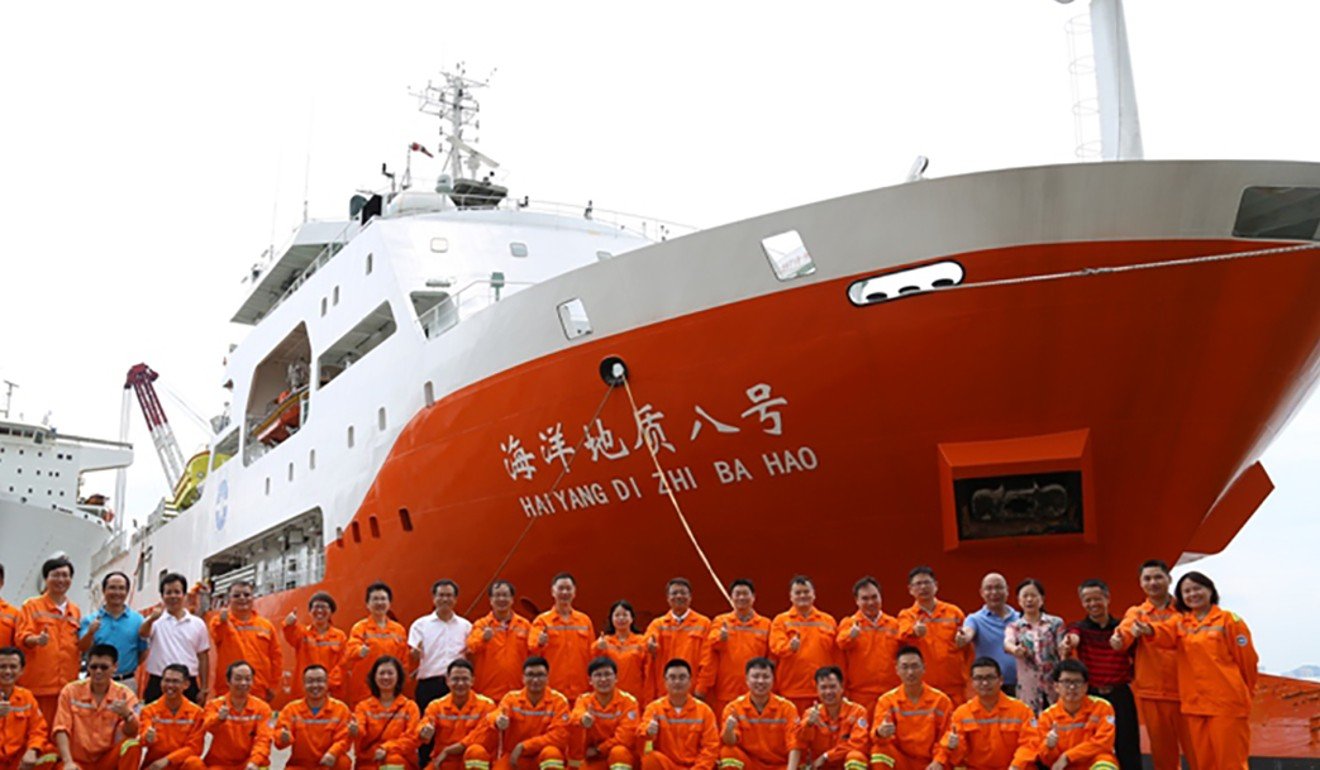
Xi Jinping says China, Vietnam should resolve their disputes ‘properly’
- Nations should ‘continue to strengthen mutual political trust … spread Sino-Vietnamese friendship’, Xi says in telephone call to Vietnamese President Nguyen Phu Trong
- Despite long-running territorial clashes, China and Vietnam are this year celebrating 70 years of diplomatic ties
“We have to continue to strengthen mutual political trust, spread the traditional Sino-Vietnamese friendship and deepen the roots of our relations, while also focusing on the big picture to handle and solve our disputes properly in the long run,” Xinhua quoted Xi as saying in a telephone call to Nguyen.
According to Xinhua, Nguyen told Xi that: “Vietnam hopes to strengthen mutual political trust and exchange governing experience with China, push forward more economic cooperation, build support from the public on friendly cooperation, and expand communication on multiple levels.”
The ship sailed close to Vanguard Bank, the westernmost reef in the resource-rich Spratly Island chain, which sits within Vietnam’s exclusive economic zone but which Beijing says falls within the “nine-dash line” it uses to claim sovereignty over about 90 per cent of the disputed waterway.

The next two Asean summits will be held in Vietnam in April/May and October/November, and the South China Sea is likely to be one of the hot topics on their agendas.
Le Hong Hiep, an expert in Sino-Vietnamese relations at the ISEAS-Yusof Ishak Institute in Singapore, said that with the relationship between the two countries in a “fragile” state, the way in which Hanoi addressed the South China Sea issue at the regional meetings was likely to be influenced by how Beijing acted in the meantime.
“As Asean chair, Vietnam is in a good position to highlight the South China Sea issue at the Asean meetings in 2020, especially if China takes any provocative action,” he said.
“But Vietnam also wants to make its chairmanship a success, and does not want to be seen as taking Asean hostage by overemphasising the South China Sea issue. Therefore, Hanoi will expect Beijing to exercise restraint.”
Why fishing boats are on the territorial front line of the South China Sea
Xu Liping, a professor at the Institute of Asia-Pacific Studies at the Chinese Academy of Social Sciences in Beijing, said that while the South China Sea would continue to be a challenge, Beijing would not shy away from taking action in the disputed waterway if it felt another nation had crossed one of its “bottom lines”.
Asean and China are in talks to establish a code of conduct for the disputed waterway and an agreement is expected to be reached by next year.
However, progress has been slow, as Beijing is seeking a non-binding deal that it said would improve regional trust but would not be used to resolve territorial claims.

